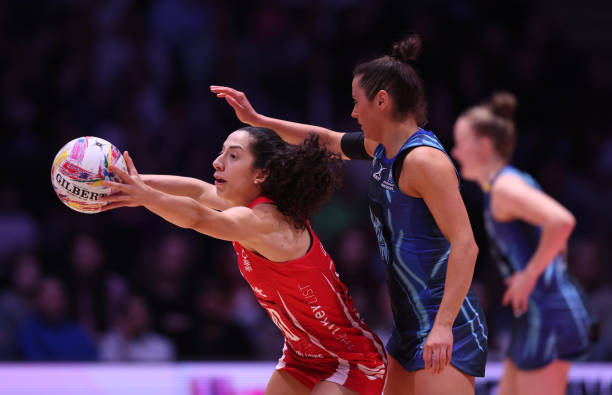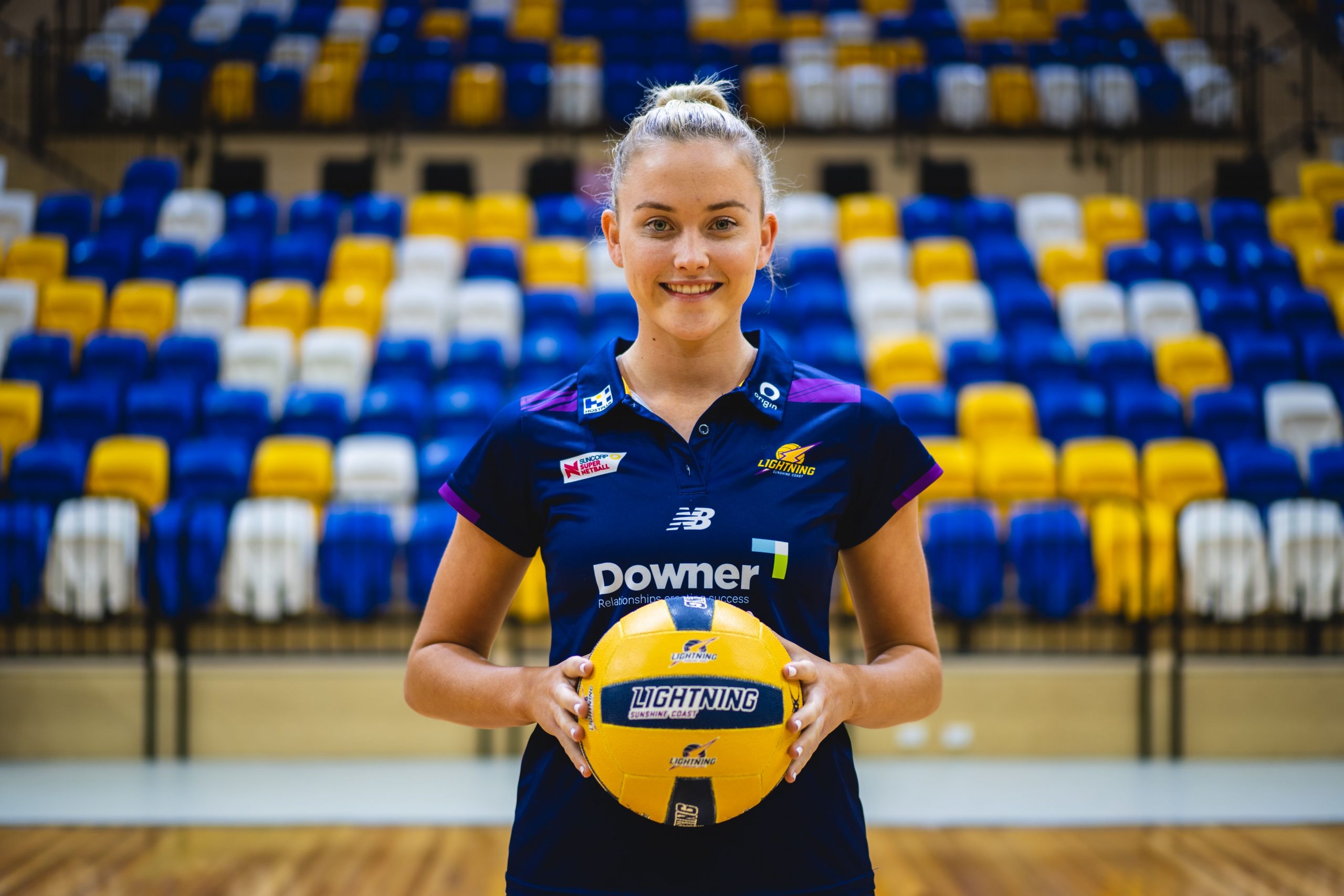THE first international test matches between Australia and New Zealand are well and truly done and dusted, with the New Zealand Silver Ferns dominating the 2021 Constellation Cup and winning 3-1 to take home the trophy for the first time since 2012. With all four matches complete and plenty of talking points, Draft Central is taking a look at what we have learned across the four encounters.
NZ is close to completing its rebuild, Australia is only just beginning its own
When it comes to pre-tournament expectations, not many opinions were going the way of the Diamonds given the Ferns’ excellent development over the past few years. But whilst questions were still being asked about the retirement of Maria Folau and Laura Langman, as well as Katrina Rore‘s subsequent pregnancy, the Ferns got down to business and proved they have plenty of answers and options who can step up in their stead. Whilst the Ferns’ attacking depth was tested in the second match when Ameliaranne Ekenasio did not take the court, seeing the Diamonds come away with the win, realistically the New Zealand squad proved it was more than capable of matching and beating the Diamonds all across the court.
For Australia, a close-to full strength squad was not enough, with a lack of experience seeing the Diamonds struggle to match the Ferns list. With a number of retirements since their last test match and a completely new goaling unit getting priority time on court, the consistency and intensity just was not there as the Ferns dominated, proving their experience with a couple of clinical and comeback performances.
Accuracy to post is critical during test matches
Goaling accuracy is necessary in any netball match, but when it comes to a test scenario and international standards, shooting with accuracy and volume is critical to get wins on the board and ensure world rankings are maintained with such a tight race to top spot. Realistically, whilst both teams plied their trade and had some excellent moments, it was the frontlines that broke down under pressure and inaccuracy that let both Australia and New Zealand down, with the Diamonds feeling that pain a lot more than the Ferns given they lost the trophy this time around. Overall, Australia only put up four less goals than New Zealand across all four matches for a 78 per cent accuracy, compared to the Ferns’ 84 per cent, and it is safe to say results could have looked very different if the accuracy was there – for both teams.
Overall, the highest accuracy goaler across the board was Caitlin Bassett, who missed three shots at 89 per cent but only played a total of 53 minutes across the four matches. Maia Wilson was the standout with 140 goals from 161 attempts at 87 per cent, whilst the next highest scorer was Kiera Austin, who showcased her clever playmaking but struggled with her accuracy for 77 goals from 110 attempts at just 70 per cent. Cara Koenen was a revelation in the circle with 76 goals at 85 per cent, whilst Ekenasio put up 41 of her 52 attempts at 79 per cent across her three matches. Realistically, if both teams had scored every goal they put up, the Diamonds would have comfortably swept the competition 3-1 given the role inaccuracy played in the second and third results, putting up three and two more attempts during each occasion. Nevertheless, the Ferns defence impressed and made quick work of the youthful Diamonds frontline to turn the tables the other way.
New Zealand’s changes paid off
Despite a small hiccup during the second match with Ferns captain Ekenasio sitting on the sidelines, a very settled and consistent rotation of players was had across the Ferns with changes only made when required, and players proving they had the ability to compete seamlessly at an international level. Whilst coach Noeline Taurua was unafraid of making changes, she also allowed her list to feel out issues as a squad and make the Diamonds pay, time and time again. Defensively was where the Ferns shone, especially against a comparatively inexperienced attack line given Bassett did not get that much court time, as the trio of Jane Watson, Sulu Fitzpatrick and Karin Burger made their presence felt and piled on the intensity.
On the other side of the coin, new Diamonds coach Stacey Marinkovich was not quite as willing to use her squad’s bench depth, with a very young front-line countered by an experienced defence line – but at times requiring the opposite with defender Courtney Bruce playing out of position in goal defence and visibly fatiguing, and fellow defender Jo Weston spending most of her court time out in wing defence. Meanwhile, the inexperienced combination of Koenen and Austin could only cope with so much pressure without the cool, calm and collected assistance of Bassett at the post, and likely would have benefited with time off the court to sit back and adjust their style when the going got tough.
Quarantine should not be blamed, but it can be an excuse
At an international level, every single bit of preparation matters, and whilst both nations managed to get their entire respective seasons underway and complete last year, the two nations had very different lead-ups to the Constellation Cup – namely all four matches understandably being played in New Zealand due to COVID-19 travel restrictions, as well as a required two week quarantine period for the Australian squad. Whilst these limitations possibly would not have been such a significant issue with a more experienced Diamonds squad and an overall lack of consistent training back in Australia with differing restrictions from state to state – amongst hard lockdowns – it proved crucial with obvious signs of wear and tear in the earlier few matches, and fatigue setting in early in the last two matches given the side’s lack of match simulation and preparation. Factor in that New Zealand had a couple of opportunities to pull on the black dress last year against England and the Silver Ferns Men’s squad to iron out their lineup and connections, and the Australians were at a huge disadvantage heading to Christchurch. That being said, the Ferns played better across all four matches and well and truly deserved the trophy, and Australia will look to pick itself up and take all the critical learnings of this test to their next international opportunity.
The trans-Tasman rivalry is here to stay
The four matches were a huge spectacle, and even without crowds for three of the four matches, the intensity and excitement was palpable as the two nations went head to head. Whilst there is no doubt the Silver Ferns are the deserving winners of the trophy, the tight contests across the court proved how much each and every player wanted a win, especially after such a disjointed 2020. New Zealand proved they can mount a comeback from any scoreline, as seen by the third and fourth matches, and the Diamonds proved that they have a way to go to topple the Ferns’ lineup with this rebuilding squad. International netball is back, and having both nations back out on court was a huge step in the right direction following a tough year, so there is no doubt the rivalry will only grow from here after such a huge tournament and end to Australia’s hold on the Constellation Cup.









